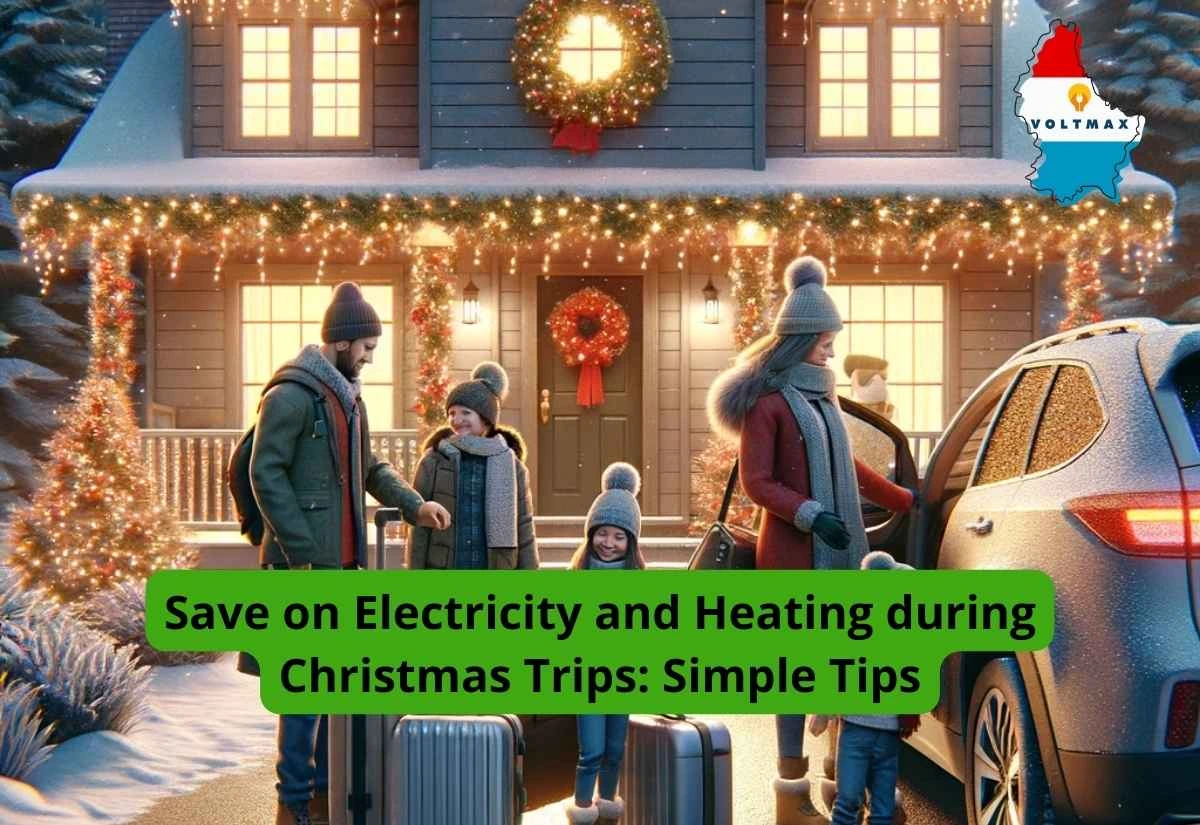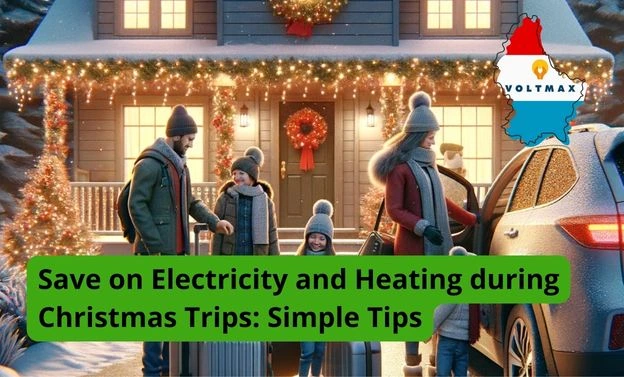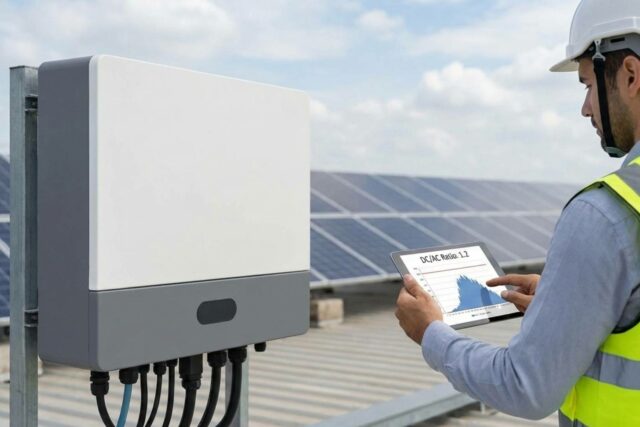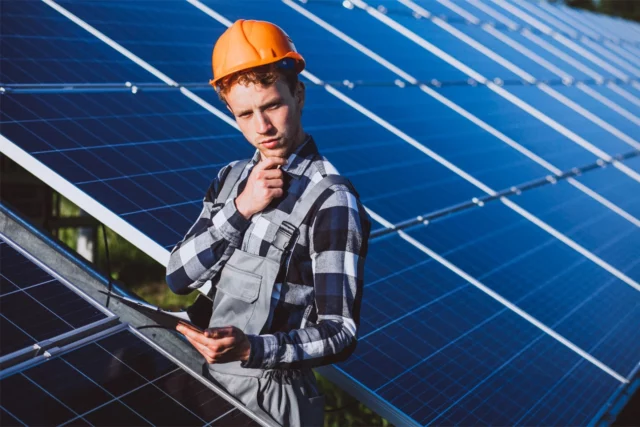
Going on a Christmas vacation is a wonderful time, full of rest and joy. However, leaving your home empty for several days can raise concerns about safety, energy consumption and heating costs. The good news is that there are many simple tips you can take to minimize these concerns and save on your bills effectively. In this article, we provide practical and simple tips that will help you reduce energy consumption and reduce costs, while ensuring that your home remains safe and prepared for your return. From smart management of your heating system to simple tricks for electrical appliances, these tips will help you enjoy your holiday break knowing that your home is well organized and economical.

Table of contents
ToggleSimple tips to save electricity and heating while traveling:
Lowering the heating temperature: Before leaving, it is recommended to lower the thermostat setting, but not turn off the heating completely. The optimal temperature during your absence is around 15-16°C. This is warm enough to prevent water pipes from freezing and damaging your heating system, while also saving energy. Remember that too low a temperature can lead to problems such as freezing of pipes or an increased risk of moisture and mold.
Turning off electrical appliances: Before leaving, it is recommended to unplug appliances that are not needed during your absence. This includes TVs, computers, audio systems, chargers and other small electrical appliances. Devices left plugged in, even when not in use, can continue to draw electricity (so-called “vampire energy”), unnecessarily increasing energy consumption and electricity bills. Additionally, disconnecting devices reduces the risk of fire caused by overheating or electrical failure. If you have appliances that need to be left on, such as a fridge or freezer, make sure they are in good working order.
Using timers: If you have a programmable thermostat, set it so that the heating only turns on at certain times. You can also use timers for certain devices to automatically turn them off and on at specific times. If you have photovoltaics and a heat source related to electricity, set the heating mainly during photovoltaic operating hours. This will allow you to use your own produced electricity.
Protect your home from the cold: Make sure all windows and doors are closed securely. Check for drafts and insulate windows and doors if necessary. If you have ventilation flaps that can be open, close them to prevent cold air or pests from entering.
Shutting off the water and protecting your pipes: If you’re away for an extended period of time and are concerned about frost, consider closing the main water valve and draining your pipes to prevent them from bursting. This mainly applies to pipes supplied to detached garages, outbuildings, swimming pools, garden irrigation systems, etc.
Using alarm systems: If you have an alarm system, make sure it is turned on. It can not only protect your home, but also inform you about possible problems, such as water leaks or breakdowns.
Adjusting the fridge and freezer: Before you leave, it’s a good idea to adjust the temperature settings in the fridge and freezer. If you’re going away for a long time and don’t leave much food inside, you can increase the temperature a bit to save energy, but remember to still maintain safe food storage conditions. The recommended temperature for refrigerators is about 4-5°C, and for freezers – about -18°C. Before leaving, also make sure that the fridge and freezer are closed properly and that they do not contain any perishable products. If you are going away for a very long period of time, you may want to consider emptying your fridge and freezer and completely turning off and defrosting these appliances for additional energy savings.
Outdoor lighting with motion sensors: Before leaving, it is worth considering outdoor lighting. Instead of leaving your outdoor lights on all the time, consider installing lighting with motion sensors. This solution not only helps save energy, but also increases safety because it automatically turns on when it detects movement. This can deter potential burglars and signal to neighbors or passers-by that something is happening around your home. Additionally, motion sensors eliminate the need to remember to turn the lights off and on, which is especially useful during long absences. If you already have permanent outdoor lighting installed, consider adding motion sensors or setting it on a timer to limit its operation to specific nighttime hours.
Christmas Lights Check: Before you leave, it’s a good idea to check that your Christmas lights are in good condition and there’s no risk of power surges or fire. It is safest to completely turn off and unplug all light decorations, especially those left outside your home or near flammable materials. This will prevent any potential fire risk while you are away.
And additionally, when you leave home for a few days, it is worth checking a few of these simple tips:
Empty trash cans: Empty all trash bins before leaving to avoid unpleasant odors and attracting pests.
Leave your contact details with your neighbors: Leave your contact details with your neighbors so that they can contact you in case of emergencies or problems with your home.
Securing mail and packages: If you’re expecting mail or packages, have someone pick them up or hold deliveries while you’re away to avoid them getting stuck at your door.
Using glass watering balls for potted plants: If you have potted plants, consider using glass watering balls. These elegant and practical tools allow you to gradually release water into the soil, ensuring that your plants stay hydrated while you are away. They are easy to use – just fill the ball with water and place it in the pot. This irrigation system is ideal for various types of plants and is also an attractive decorative element. Before you leave, make sure the balls are properly filled and check how long they can stay moist to suit your plants’ needs.
Remember that every home is different and some of these tips, although simple, may be more or less appropriate depending on your situation. It is important to adapt these practices to your needs and the possibilities of your home.







